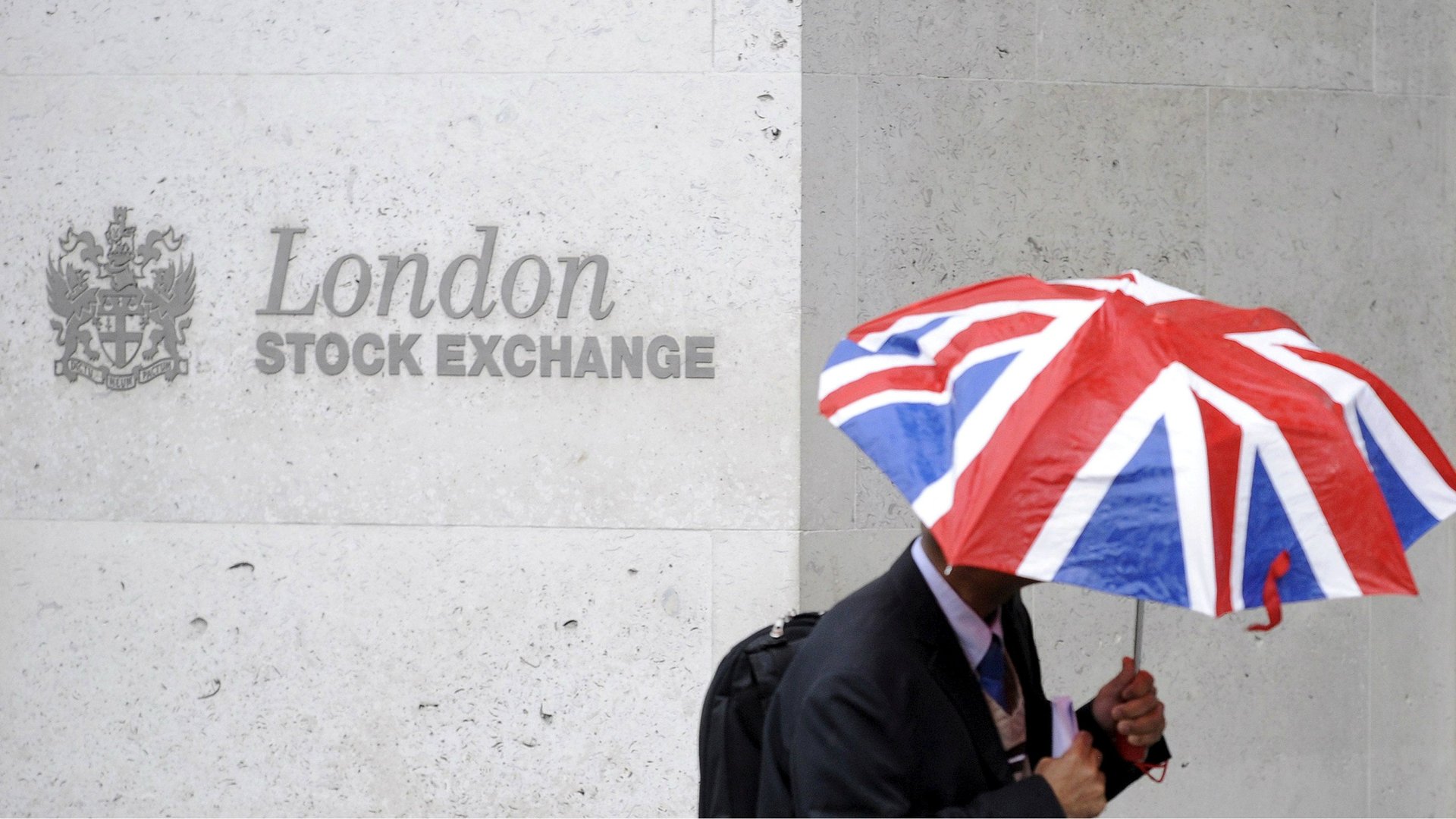Hong Kong’s attempted buyout of London Stock Exchange is the most audacious in history
The Hong Kong Exchange’s surprise offer to acquire London Stock Exchange Group is perhaps the boldest takeover ever in the exchange business. And if the industry’s graveyard of past acquisition efforts is any indication, the £32 billion ($40 billion) deal will face a firestorm of political scrutiny.


The Hong Kong Exchange’s surprise offer to acquire London Stock Exchange Group is perhaps the boldest takeover ever in the exchange business. And if the industry’s graveyard of past acquisition efforts is any indication, the £32 billion ($40 billion) deal will face a firestorm of political scrutiny.
A successful deal would combine two of the world’s leading exchange groups, which provide trading and market plumbing for assets like stocks, commodities, and derivatives. Hong Kong Exchanges and Clearing, as HKEX is formally known, said in a statement today that the deal would connect established Western financial markets with those that are emerging in the East, and with China in particular.
Lashed together, the companies have a combined market value of more than $70 billion. For context, Atlanta-based Intercontinental Exchange, the owner of the New York Stock Exchange, has a market capitalization of $50 billion.
The companies are based in places that are undergoing turmoil, to put it mildly. The UK is in the midst of a near constitutional crisis as politicians seek to either pull the country out of the EU by any means necessary, or to find a way to keep it within the bloc. Hong Kong has been buffeted by months of unrest, triggered by opposition to an extradition bill that would have sent criminal suspects to the mainland. (The bill has been withdrawn.)
Hong Kong has its own legal system and political parties, which are partly remnants of its British colonial past. But from 2047, China will no longer be obliged to grant it the autonomy it has had since the UK’s 1997 handover.
“Given the current uncertainties in global geopolitics and economics, you could be forgiven for thinking that the time would not be now to make a major investment in a cross-border acquisition,” Charles Li, CEO of HKEX, said in a blog post. “However, this is a highly compelling transaction that stands up on its own, whatever the noise, and if we don’t try, then of course by definition we fail.”
High-profile exchanges like those in London and New York are seen as national flags for their respective financial markets. As such, nationalism has often surfaced in exchange mergers over the years. In 2018, US watchdogs squashed an attempt by a group of China-based investors to acquire the Chicago Stock Exchange. The stock market was minuscule, handling around 0.5% US equity trading at the time. Nonetheless, US president Donald Trump mentioned the acquisition attempt twice during his 2016 election campaign, according to a Reuters report.
“We must continue to be vigilant, with thorough oversight, to prevent the highly-coordinated and strategic efforts of the Communist Chinese government to threaten our national security through malicious business investments,” Republican Congressman Robert Pittenger said at the time.
As far as the LSE and HKEX are concerned, the financial and business rationale for the acquisition probably makes sense, according to Steve Grob, founder of London-based consulting firm Vision57. The LSE has been seeking ways to expand its operations in China and Asia, and Asian investors clearly have an appetite for UK-listed stocks. But that may not be enough for the deal to survive.
“The $32 billion question is what do the regulators, and more importantly the politicians behind the regulators, make of letting the London Stock Exchange fall into Chinese hands?” Grob said.
It’s worth noting that HKEX successfully bought the parent company of The London Metal Exchange in 2012. But that was in a time before Brexit, and before the Trump presidency. The UK’s decision to leave the EU helped rip apart Frankfurt-based Deutsche Boerse’s takeover of the LSE just two years ago. The combined company was supposed to have its headquarters in London—a detail that became unfathomable for German authorities after the referendum.
A series of other LSE deals have failed, including two previous ones—in 2000 and 2005—involving Deutsche Boerse. Canadian banks helped scuttle LSE’s acquisition of the Toronto Stock Exchange—a merger that was opposed by Canada’s finance minister. That buyout collapse was preceded by Singapore Exchange’s failed bid for Australia’s exchange.
HKEX’s surprise proposal could also disrupt LSE’s planned takeover of Refinitiv, a terminal network for traders and other financial professionals. LSE said in a statement today that its board will consider the Hong Kong company’s overtures, and that the company is “committed to and continues to make good progress on its proposed acquisition of Refinitiv.”
Investors, in the meantime, will be closely watching the political reaction in the UK. One possibility is that British authorities, already overwhelmed by Brexit deliberations, put the issue in the “too difficult tray,” Grob said.
“You have to say the execution risk is incredibly high,” he added. “Anyone who has looked at the history of trans-national exchange mergers and acquisitions would probably say it’s pretty hard to do.”